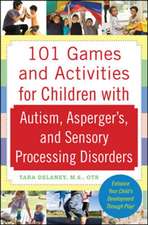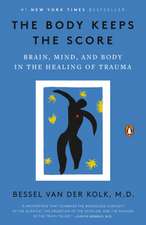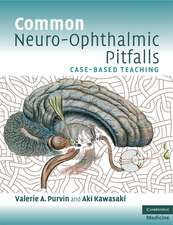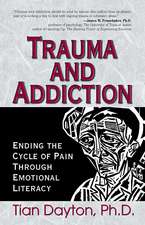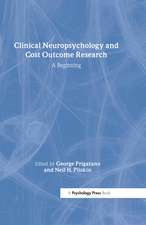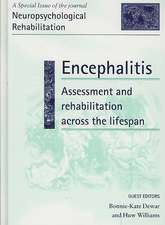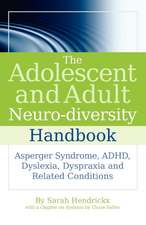The Assessment and Rehabilitation of Vegetative and Minimally Conscious Patients: A Special Issue of Neuropsychological Rehabilitation: Special Issues of Neuropsychological Rehabilitation
Editat de Martin Richard Colemanen Limba Engleză Paperback – 22 mai 2015
| Toate formatele și edițiile | Preț | Express |
|---|---|---|
| Paperback (1) | 494.70 lei 6-8 săpt. | |
| Taylor & Francis – 22 mai 2015 | 494.70 lei 6-8 săpt. | |
| Hardback (1) | 1016.86 lei 6-8 săpt. | |
| Taylor & Francis – sep 2005 | 1016.86 lei 6-8 săpt. |
Preț: 494.70 lei
Nou
Puncte Express: 742
Preț estimativ în valută:
94.67€ • 98.47$ • 78.16£
94.67€ • 98.47$ • 78.16£
Carte tipărită la comandă
Livrare economică 14-28 aprilie
Preluare comenzi: 021 569.72.76
Specificații
ISBN-13: 9781138873261
ISBN-10: 1138873268
Pagini: 416
Dimensiuni: 156 x 234 x 22 mm
Greutate: 0.58 kg
Ediția:1
Editura: Taylor & Francis
Colecția Psychology Press
Seria Special Issues of Neuropsychological Rehabilitation
Locul publicării:Oxford, United Kingdom
ISBN-10: 1138873268
Pagini: 416
Dimensiuni: 156 x 234 x 22 mm
Greutate: 0.58 kg
Ediția:1
Editura: Taylor & Francis
Colecția Psychology Press
Seria Special Issues of Neuropsychological Rehabilitation
Locul publicării:Oxford, United Kingdom
Cuprins
Part 1: Definitions, Diagnosis, Prevalence and Ethics. J.T. Giacino, K. Kalamar, Diagnostic and Prognostic Guidelines for the Vegetative and Minimally Conscious States. D. Bates, The Vegetative State and the Royal College of Physicians Guidance. J.G. Beaumont, P.M. Kenealy, Incidence and Prevalence of the Vegetative and Minimally Conscious States. S. Ashwal, Recovery of Consciousness and Life Expectancy of Children in a Vegetative State. D. Graham et al., Neuropathology of the Vegetative State after Head Injury. R.A. Barker, The Neurological Assessment of Patients' Vegetative and Minimally Conscious States. J.D. Pickard et al., Hydrocephalus, Ventriculomegaly and the Vegetative State: A Review. S.A.M. McLean, Permanent Vegetative State: The Legal Position. N.D. Zasler, Forensic Assessment Issues in Low Level Neurological States. C. Borthwick, Ethics and the Vegetative State. C. Province, The Vegetative State: Promoting Greater Clarity and Improved Treatment. Part 2: Functional Imaging, Electrophysiology and Mechanical Intervention. B. Beuthien-Baumann et al., Functional Imaging of Vegetative State Applying Single Photon Emission Tomography and Positron Emission Tomography. M. Boly et al., Cerebral Processing of Auditory and Noxious Stimuli in Severely Brain Injured Patients: Differences between VS and MCS. A.M Owen et al., Residual Auditory Function in Persistent Vegetative State: A Combined PET and fRMI Study. T. Bekinschtein et al., Assessing Level of Consciousness and Cognitive Changes from Vegetative State to Full Recovery. E.J. Kobylarz, N.D. Schiff, Neurophysiological Correlates of Persistent Vegetative and Minimally Conscious States. B. Kotchoubey, Apallic Syndrome is not Apallic: Is Vegetative State Vegetative? J.M. Guérit, Neurophysiological Patterns of Vegetative and Minimally Conscious States. C. Fischer, J. Luauté, Evoked Potentials for the Prediction of Vegetative State in the Acute Stage of Coma. C. Schnakers et al., Bispectral Analysis of Electroencephalogram Signals During Recovery from Coma: Preliminary Findings. E.B. Cooper et al., Electrical Treatment of Reduced Consciousness: Experience with Coma and Alzheimer’s Disease. T. Yamamoto, Y. Katayama, Deep Brain Stimulation Therapy for the Vegetative State. W. Matsuda et al., Levodopa Treatment for Patients in Persistent Vegetative or Minimally Conscious States. Part 3: Behavioural Assessment and Rehabilitation Techniques. F.C. Wilson et al., Vegetative and Minimally Conscious States: Serial Assessment Approaches in Diagnosis and Management. M. Rappaport, The Disability and Coma/Near-Coma Scales in Evaluating Severe Head Injury. K. Kalmar, J.T. Giacino, The JFK Coma Recovery Scale –Revised. K. Andrews, Rehabilitation Practice following Profound Brain Damage. M. Reimer, C-L. LeNavenec, Rehabilitation Outcome Evaluation after Very Severe Brain Injury. L. Elliott, L. Walker, Rehabilitation Intervention for Vegetative and Minimally Conscious Patients. A. Shiel, B.A. Wilson, Can Behaviours Observed in the Early Stages of Recovery after Traumatic Brain Injury Predict Poor Outcome?
Descriere
A useful reference for both those caring for people in vegetative conditions as well as for those investigating the physiological basis of human consciousness.










